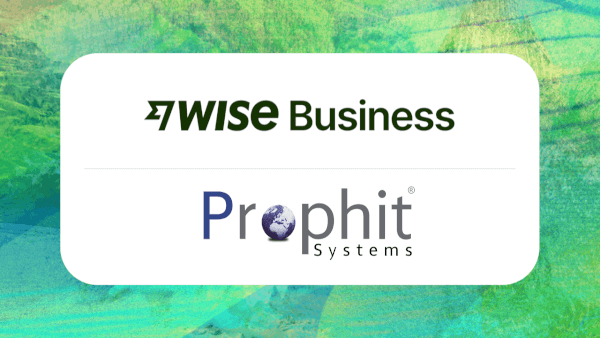Can a Sole Trader Have Employees? Rules & Guide
Unsure if a sole trader can hire employees? Learn the rules, legal obligations, and benefits of employing staff as a sole trader in Australia.

If you’re planning on starting a new business, you need to understand the process for business registration in Australia, including getting your ABN or ACN, and business trade name registration.
This guide walks through the basics of business name registration to get you started. Plus, as a bonus we introduce Wise Business as a great solution to help you manage your business finances flexibly and with low, transparent fees.
| Table of contents |
|---|
If you do business in Australia you’ll need to register to trade legally, and to meet your tax obligations. Registration might look a little different, depending on your entity type and the type of work you do. For example, while most businesses need to register their business name and get an ABN, some specific business types may need additional licenses based on business type and activities.
You’ll be able to apply for all your business and tax registrations via the Australian Government Business Registration Service¹. There’s even a really helpful registration tool² which lets you enter some details about your business entity type and the sorts of goods or services you’ll be selling, to check which registrations are needed in your specific case.
In this article, let us walk you through some of the requirements to consider for those looking to register their business in Australia.
To register a business in Australia you’ll need to first create an online account with the Australian Government Business Registration Service. There are several steps to registering your business, which we’ll explore in this guide. Getting an online account is the first requirement before applying for individual registrations and licenses.
You’ll need to complete various additional applications for registration depending on your entity type and business activities. Generally you are required to confirm your personal and contact information, your tax details, and details about your business. If you have partners, directors, or shareholders you may also need to give information about them as part of this process.
Let us take a look at some of the registration requirements to start a business in Australia.
One of the first steps to business registration is completing the step for Australian Business Number registration so you’re officially registered for tax and with other authorities. Not all businesses can apply for an ABN - in some cases you need an ACN instead. We’ll look at that later.
Your Australian Business Number (ABN) is a unique 11 digit number you’ll use when dealing with the Australian Taxation Office (ATO) and other government authorities. You will need an ABN before you can register your business name, and also to register for Goods and Services Tax (GST).
It’s free to get your ABN as long as you’re eligible. Register your Australian business online by creating an account and using the following information and documents:
You can complete this step yourself or through an authorised agent. Agents charge a fee for their services, so do make sure you know what you’ll need to pay in advance.
If you conduct business under a name other than your own you need to register your business name to trade legally.
You register your business name with ASIC which means you are able to trade anywhere in Australia under that name. It’s important to note that rules apply to the selection of business names. You can’t use a name which is already being used by a similar business, for example.
When you complete the registration process online you will also need to pay the business name registration costs³:
After the registration expires you can renew your business registration in the same way.
You can apply for your business name registration at the same time that you apply for your ABN business registration. However, if your application for an ABN is unsuccessful, you won’t be able to register a business name and instead will get a refund of your business name registration fees.
Some entity types need to register for an Australian Company Number (ACN) instead of an ABN. This applies to private companies, public companies and some special purpose companies. These types of company entities have specific legal duties and requirements, so you’ll need to make sure you’re familiar with all the rules as they apply to you if this is your preferred entity type.
The fees for registering a company depend on the specific type of company you have. The range is from 491 AUD to 597 AUD.
You’ll complete your application for an Australian Company Numberthrough the Australian Government Business Registration Service. As part of your application you’ll be asked for information and documents such as:
Once you have your ABN or ACN you can get your business registered for tax, to make sure you comply with all your reporting and payment obligations. There are several different types of tax which may be relevant to your organisation, depending on your business type, size and niche. These can include⁴:
GST and Fringe Benefits taxes are among the most common tax registrations needed for newly created Australian businesses. Let’s take a look at who must get registered, and how to apply.
You need to register for GST⁵ if you have or expect to have a turnover which exceeds the GST threshold of 75,000 AUD. You may also need to register if you want to claim fuel tax credits, or if you run specific business types. You can choose to register for GST voluntarily even if you don’t meet the requirements.
You can register for GST with the ATO online, through a tax agent, or by calling the ATO on 13 28 66. You’ll need to submit a business activity statement once you are GST registered.
If you offer fringe benefits to your team, such as use of a company car, or by reimbursing private expenses like school fees for an employee or director, you need to register for tax⁶. This step is required to ensure you pay the correct taxes on any benefits offered to employees in addition to their salaries.
You can register for Fringe Benefits Tax through an agent, by phone to the ATO, or using NAT 1055 form which must be submitted to the ATO.
When you register your Australian business you may be obliged to open a business account to keep your personal and business finances separate. Even if this isn’t mandatory, it’s a smart plan to make it easier to keep on top of your business performance and spot ways to improve. Plus, having separate accounts makes tax reporting and compliance easier, cutting down admin and allowing you to get on with growing your business.
To help you manage your business finances more effectively, check out the smart multi-currency accounts from Wise Business. Hold and exchange 40+ currencies with no minimum balance and no ongoing fees, get paid from around the world, send fast transfers to contractors and suppliers overseas, and spend and withdraw with your Wise debit card.
Whenever you need to send, spend or exchange foreign currencies, you’ll benefit from the mid-market exchange rate, with low, transparent fees. In addition, Wise Business helps you minimise admin with accounting integrations, bulk payment solutions, multi-user access, and a powerful API, with low costs and flexible ways to trade locally and internationally.
Here's a summary of features that come with a Wise Business account:
Sign up for the Wise Business account! 🚀
You can apply to get a copy of my business registration certificate in Australia through ASIC using form 960⁷, which can be completed and submitted online.
You can check your business registration application status by logging into your account on the Australian Government Business Registration Service.
*Please see terms of use and product availability for your region or visit Wise fees and pricing for the most up to date pricing and fee information.
This publication is provided for general information purposes and does not constitute legal, tax or other professional advice from Wise Payments Limited or its subsidiaries and its affiliates, and it is not intended as a substitute for obtaining advice from a financial advisor or any other professional.
We make no representations, warranties or guarantees, whether expressed or implied, that the content in the publication is accurate, complete or up to date.

Unsure if a sole trader can hire employees? Learn the rules, legal obligations, and benefits of employing staff as a sole trader in Australia.

Learn how to lodge your BAS in Australia. Our guide covers what to include, from GST to PAYG, key due dates, and best practices to stay compliant with the ATO.

Discover if a virtual assistant is right for your business. This guide covers the types of VAs, their duties, managing them, along with the pros and cons.

Read on how Prophit Systems saved up to 9x on global payroll by switching to Wise Business, saving over 10+ hours a month in admin time.

Essential invoice payment terms for Australian businesses. From Net 30 to PIA, discover best practices to improve cash flow and get paid faster. Read now!

Learn how the OFX business account works, its features, and how it compares to other international payments solutions. Find out more here!